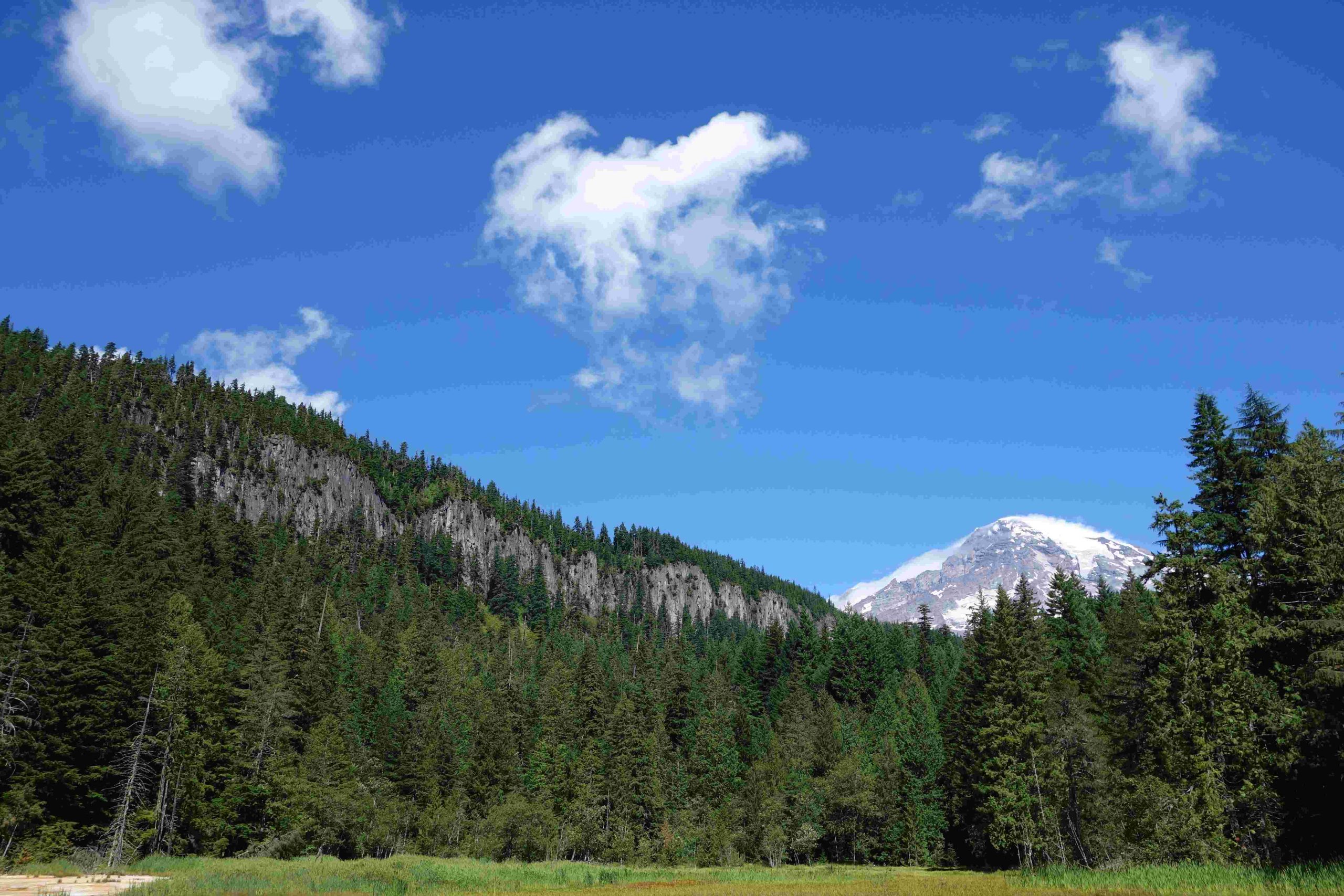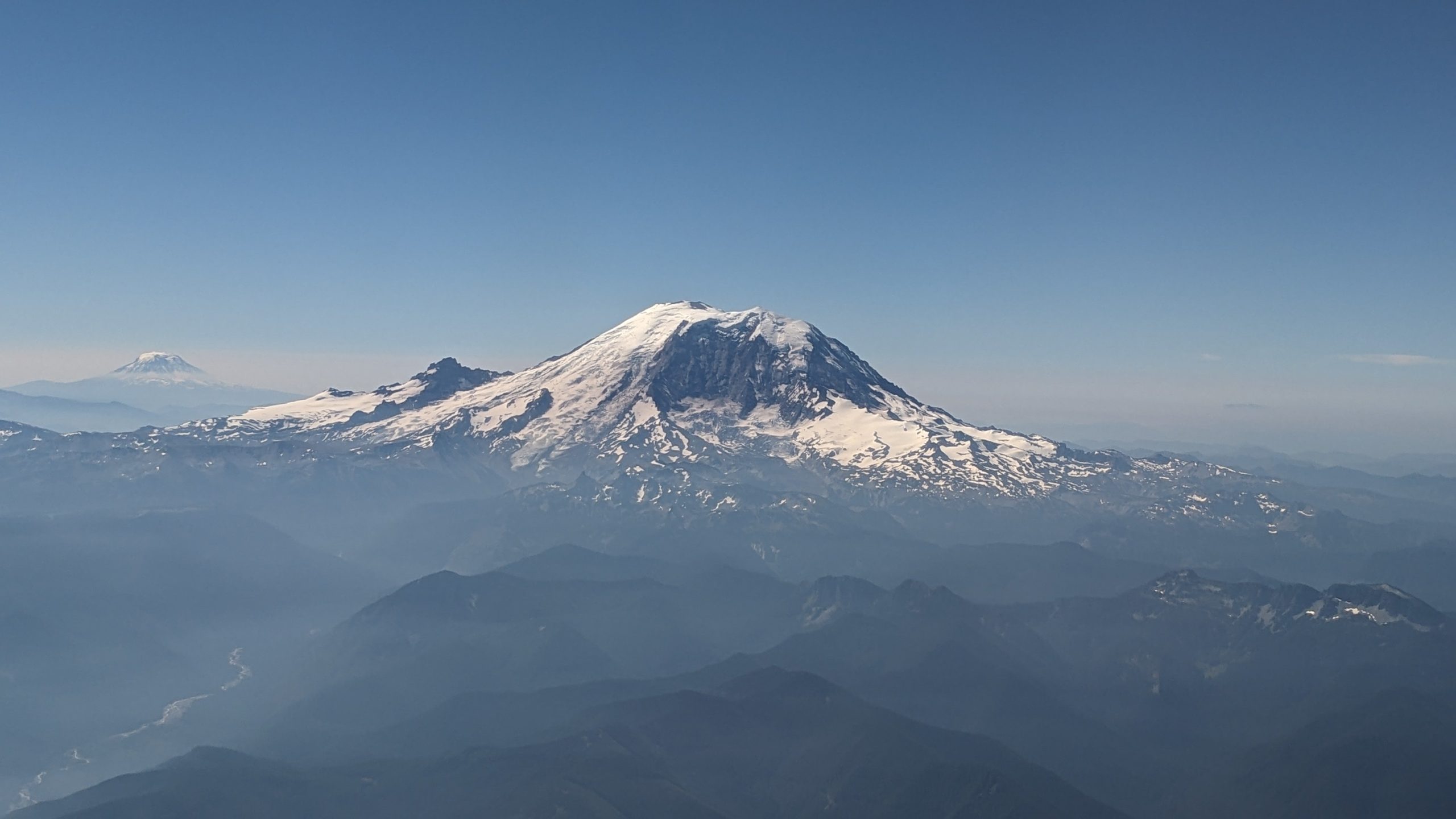Mount Rainier’s shadow cast on clouds during sunrise is a breathtaking phenomenon that occurs when the sun rises behind the mountain, projecting its silhouette onto a layer of clouds. This spectacle is most visible during late fall and early winter when the sun rises at a lower angle. Photographers and nature enthusiasts flock to various vantage points around Mount Rainier to capture this awe-inspiring sight, which combines the majesty of the mountain with the ethereal beauty of clouds and sunrise.
What Are the Best Times to Capture Mount Rainier’s Shadow on Clouds?

The optimal times for capturing Mount Rainier’s shadow cast on clouds at sunrise are typically during the periods when the sun rises farther to the south, which is more pronounced as the winter solstice approaches. Here’s a breakdown of the best times:
- Late Fall to Early Winter: The phenomenon is most visible from late October to early February.
- Specific Example: A notable capture occurred on October 26th, 2011.
- Peak Visibility: The shadow is most evident when the sun rises at a lower angle, generally from late October to early February.
How Do Cloud Conditions Affect the Shadow Cast?

The visibility and impact of Mount Rainier’s shadow on clouds are significantly influenced by cloud conditions:
- Uniform Cloud Deck:
- Optimal height: Around 6,500 feet
-
Effect: Creates a clear and defined shadow on the underside of the clouds
-
Higher Level Cloud Deck:
- Effect: Shadow appears on the bottom side of these clouds
-
Visual Impact: Creates a dramatic effect
-
Cloud Inversion or Fog:
- Location: In the valleys
- Enhancement: Makes the shadow more pronounced and visually striking
Where Are the Best Vantage Points for Photographing This Phenomenon?
High Rock Lookout
High Rock Lookout is one of the prime locations for capturing Mount Rainier’s shadow cast on clouds during sunrise. Here are the details:
| Aspect | Information |
|---|---|
| GPS Coordinates | 46.666416, -121.891251 |
| Trail Length | 3-mile round trip |
| Elevation Gain | Nearly 1,400 feet |
| Trail Difficulty | Very steep in the last quarter mile |
| Parking | Dirt parking lot at the trailhead |
| Permits | Contact Gifford-Pinchot National Forest, Cowlitz Valley Ranger District |
Other Vantage Points
Any location with a clear view of Mount Rainier can potentially serve as a vantage point. This includes:
- Areas around Seattle
- Nearby towns with unobstructed views of the mountain
- Elevated positions that offer a clear line of sight to Mount Rainier and the surrounding cloud layers
What Photography Techniques and Equipment Are Recommended?
To capture the perfect shot of Mount Rainier’s shadow cast on clouds during sunrise, consider the following techniques and equipment:
Exposure Settings
- ISO: Use a lower ISO (100-400) for cleaner images
- Shutter Speed: Adjust based on available light and desired effect
- Aperture: Balance with shutter speed for proper exposure
Filters
- Graduated Neutral Density (ND) Filters: Useful for balancing exposure between bright sky and darker landscape
Lens Recommendations
- Wide-Angle Lenses:
- Recommended: 24-70mm lens
-
Purpose: Capturing broad landscape and mountain’s shadow on clouds
-
Telephoto Lenses:
- Recommended: 70-200mm lens
- Purpose: Zooming in on specific details or capturing the mountain from a distance
Additional Equipment
- Tripod: Essential for stability in low light conditions
- Remote Shutter Release: Minimizes camera shake
Preparation Tips
- Bring a warm jacket for early morning temperatures
- Pack water and snacks for the hike
- Don’t forget bug spray, especially during warmer months
How Can Photographers Prepare for the Shoot?
- Research Weather Conditions:
- Check cloud forecasts for optimal cloud cover
-
Monitor sunrise times and angles
-
Scout Locations in Advance:
- Visit potential vantage points during daylight
-
Plan your route and parking
-
Arrive Early:
- Set up equipment before sunrise
-
Allow time for adjustments and test shots
-
Be Patient and Flexible:
- Weather conditions can change rapidly
- Be prepared to return multiple times for the perfect shot
By following these guidelines and being prepared, photographers can increase their chances of capturing the stunning phenomenon of Mount Rainier’s shadow cast on clouds during sunrise. This unique interplay of light, shadow, and natural beauty offers a rewarding experience for those willing to put in the effort and planning.
References:
1. Picture of the Day: Mt. Rainier Casting a Shadow on Clouds
2. One of the Best Sunrise Hikes Around Mt. Rainier
3. Rainier’s Shadow
